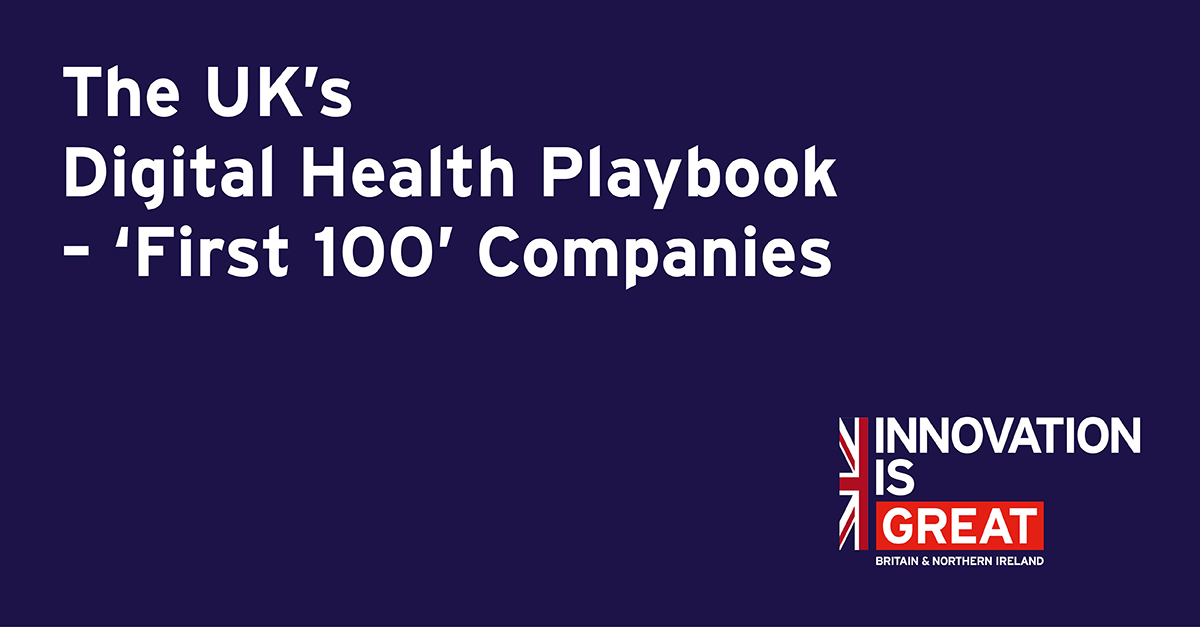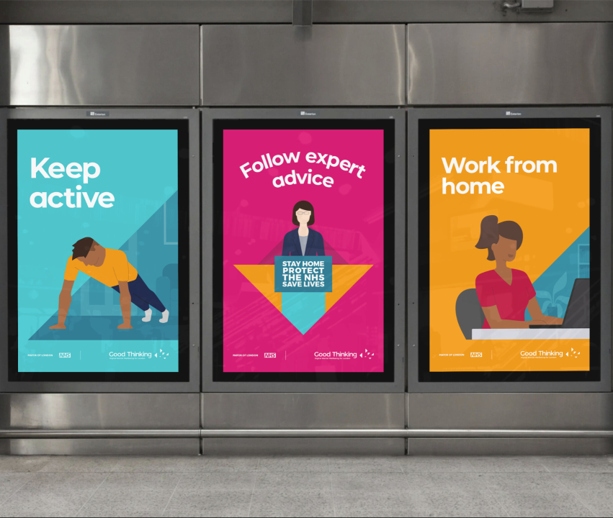Situation
Good Thinking is London’s Digital Mental Wellbeing Service, backed by the London Mayor’s Office, Public Health England, London Councils, NHS, and Thrive LDN. It was developed in response to repeated studies that demonstrated that mental health difficulties were common but accessing support was complicated.
Intensive user testing with over 450 Londoners with mental health charity Mind revealed that people do not always fit into categories for, or want, traditional treatment options, and committing to a course of therapy is not always an option. However, the research also revealed that people are willing to use online wellbeing resources about the four most common mental health concerns: anxiety, sleep, stress, and low mood. There is also a desire for trusted interventions that are accessible 24/7, private, secure, online, and where possible free. And people want to avoid stigma by being able to access services in private and at any time.
These insights led to a model of service for Good Thinking that is agile, responsive, and hugely flexible. The elements of the service include using digital marketing to help reach people, a comprehensive self-assessment, clear urgent support information, support in finding offline support, a quiz to find personalized support, and relatable helpful content.
Alongside these elements, it was also identified the program should feature NHS-approved, class-leading Apps that offer choice and a range of ways of improving mental health and well-being, that are based on the best evidence, are safe and secure, and are free for users to use. But the team realized that trust in digital health may be an obstacle to progress and that trust and confidence must be earned.
To address the trust concerns, the products would need to be completely free, without any in-app purchases and they would need to be fully assessed for compliance with the latest regulations for safety.
Solution
To help identify the best-in-class apps, the team developed a Standard Operating Procedure, to ensure the program would meet the health priorities, reduce inequalities, and ensure people are offered the best options safely, with an expectation that use will improve health and well-being.
To ensure the program was best informed, Good Thinking chose to work with the Organization for the Review of Care and Health Apps (ORCHA). Experts in health app review and accreditation, ORCHA worked closely with Good Thinking to advise on each step of the process.
It was decided that rather than offer a long list of options, the site would instead provide one best app for each health priority, accompanied by a clear usage explanation. This would enable people to quickly spot the most relevant apps for them.
Good Thinking identified a short list of the best apps for each health priority. ORCHA then identified which standards each app had to meet and conducted the relevant assessments of every app. This enabled Good Thinking to select the final class-leading apps.
Examples of apps selected that provide support to a distinct user group include:
- Apart of Me – a game to help young people cope with bereavement.
- Combined Minds – a peer support app designed for those looking to help a friend who is struggling or in crisis.
As standards evolve and apps regularly update, unlike traditional approaches, ORCHA’s unique platform conducts ongoing monitoring, automatically identifying when an app requires a new review and conducting this. This enabled the program to put in place an important governance step of identifying when an app needs to be decommissioned and removed from the platform.
Results
Alongside the other support services, the Good Thinking site includes a best-in-class app for a range of situations for adults and children, all of which when tested, exceed quality thresholds.
Since its launch in November 2017, Good Thinking has attracted 500,000 users or one in twelve of the region’s adult population. They’ve visited the service over 650,000 times, 24 hours a day, every day of the week, including national holidays.
Alongside all digital health services, it saw an increase in use during COVID, especially during the first lockdown period. Since in-person services started to open up, visitor numbers have dipped, but the team expects to see an increase in the use of digital services over the next five years, much as we might expect in the retail sector.
Over the past year, there has been a great deal of work to ensure Good Thinking can complement other care pathways and services, and assist with demand management. For example, the apps that Good Thinking hosts can be prescribed directly by GPs.



